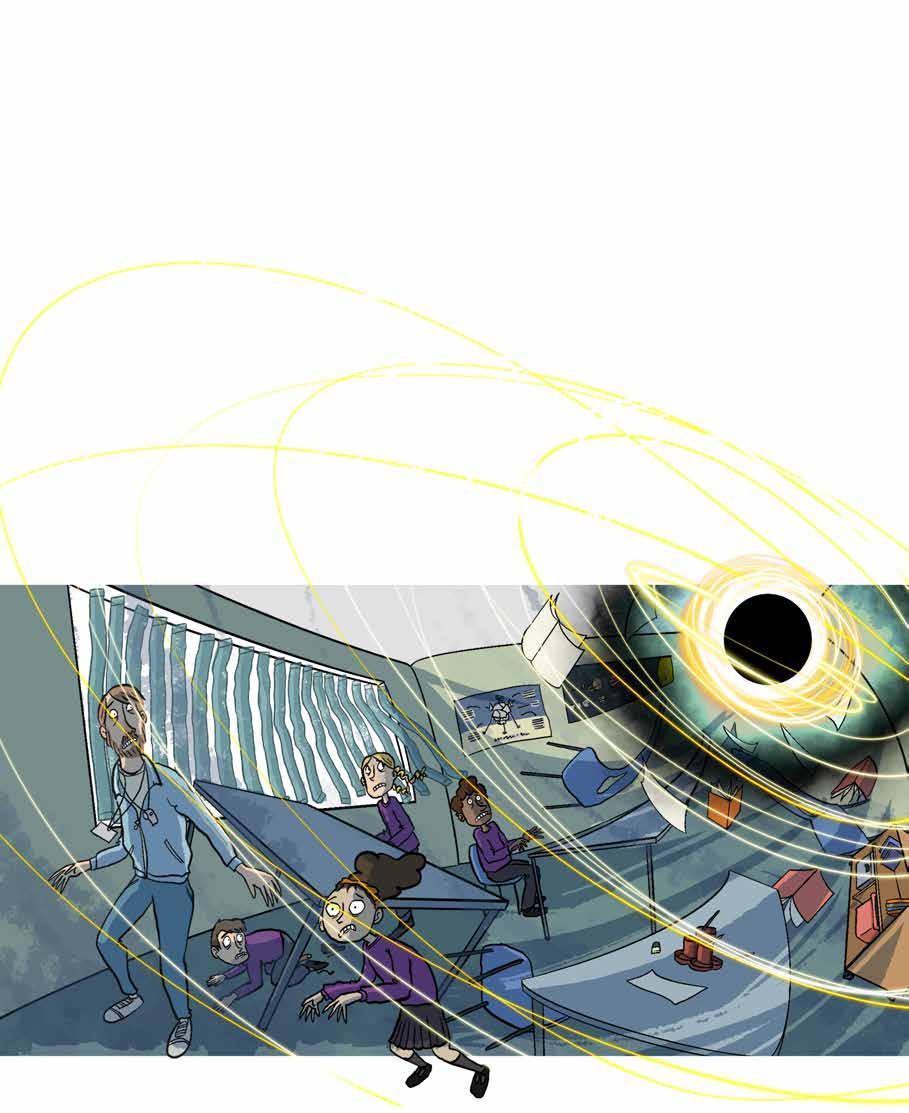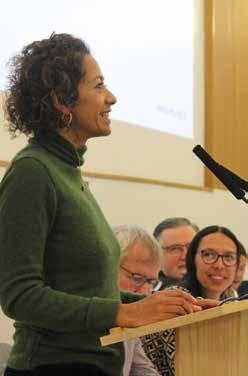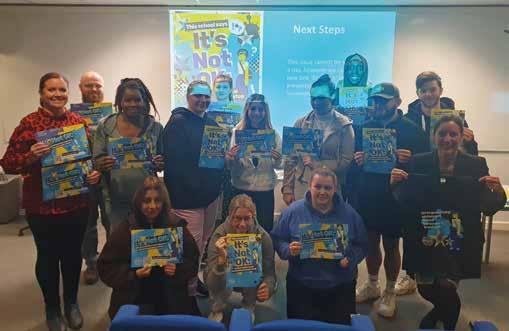
3 minute read
Michael Rosen
Words by Michael Rosen Illustration by Dan Berry
You can always tell, when things are getting serious, politicians make the economy seem strangely mysterious. They start to talk of factors beyond their control; and they invent metaphors, like a ‘fiscal black hole’.
They pretend they juggle figures, with great precision and that everything they do is a ‘difficult decision’. But whatever they do, with this circumlocution they return again and again, to the same solution:
A chancellor appears before us, preens and struts then announces yet another set of public sector cuts. We know what this means, even if they don’t say –fewer staff, worse conditions, and of course low pay.
It’s not really a mystery, because it’s always the same: they wreck the economy and we get the blame. Michael Rosen
News A wealth of experience and optimism

Guest speaker BBC journalist Samira Ahmed was a pupil at Wimbledon High School, part of the Girls’ Day School Trust, and supported its strike
THE cost-of-living crisis and pay were two of the issues discussed at this year’s independent sector conference, held on Saturday 19 November.
Independent schools are very different beasts to state schools. They’re businesses run by people who are not businesspeople, but as Barry Gardiner MP said: “If the only way for you to run your business is to grind down the wages of your workforce, then you are running your business poorly.”
With this in mind, the independent sector conference could not have been more timely. The issues around the Teacher’s Pension Scheme were passionately discussed and we were encouraged to continue to fight for our deferred wages. I always enjoy the democratic processes of the union and was pleased to witness the voting of six fabulous members to attend annual conference this spring.
I had approached this weekend’s independent school conference with a little more than the usual trepidation that a northerner feels when forced to go to London. This would be my first as a member of the independent members’ national council, and my first in-person national conference since before the pandemic. As a young(ish) woman, these environments can also be intimidating.
I am pleased to report that my concerns were unfounded. What I encountered was a wealth of knowledge, experience and optimism from an entertaining and rousing panel of speakers who kicked off the day. The independent sector has had a very busy year. The Girls’ Day School Trust strikes have accounted for one of the NEU’s great successes of recent years, and I was encouraged to hear from three of the organisers about their experiences of strike action and organising ahead of things yet to come for many of us, including our friends in the state sector.
I leave you with the message I feel that this conference has brought us: read your contracts, know your rights, stand up for them.
By Beth Collins, independent members’ national council
Working together in schools to tackle sexism and harassment
AS part of International Day for the Elimination of Violence Against Women, the NEU formally launched It’s Not OK, a new toolkit to tackle sexism and sexual harassment in schools and colleges.
The toolkit is a response to research and concerns from members that sexism and sexual harassment are far too prevalent in schools.
Helen Clark, a lecturer at Sheffield Hallam University within its education, psychology and counselling department and a member of the NEU, attended the launch. She said: “I feel very privileged to have met and networked with teachers and union members who are also passionate about this issue.
“I was more than impressed with the organisation of the conference and the content of the talks. The speakers, the agenda, the workshops and the resources provided were extremely informative and inspirational. It reinforced that we all need to work together and take an active part in raising awareness and put an end to sexism and sexual harassment.
“This needs to start from an early age. Schools can play a significant role in the prevention of sexist cultures, and can influence society to become equal, compassionate and a place where there is mutual respect. We also need to work together to reduce crimes happening later in life, such as domestic violence, coercive control and rape.”

Sheffield Hallam University students with the NEU’s It’s Not OK toolkit










